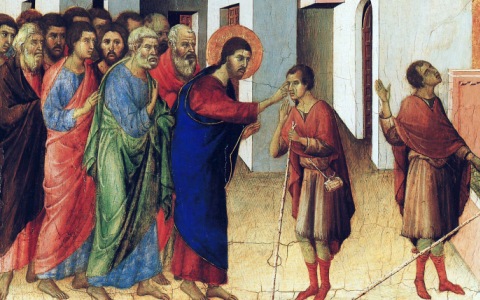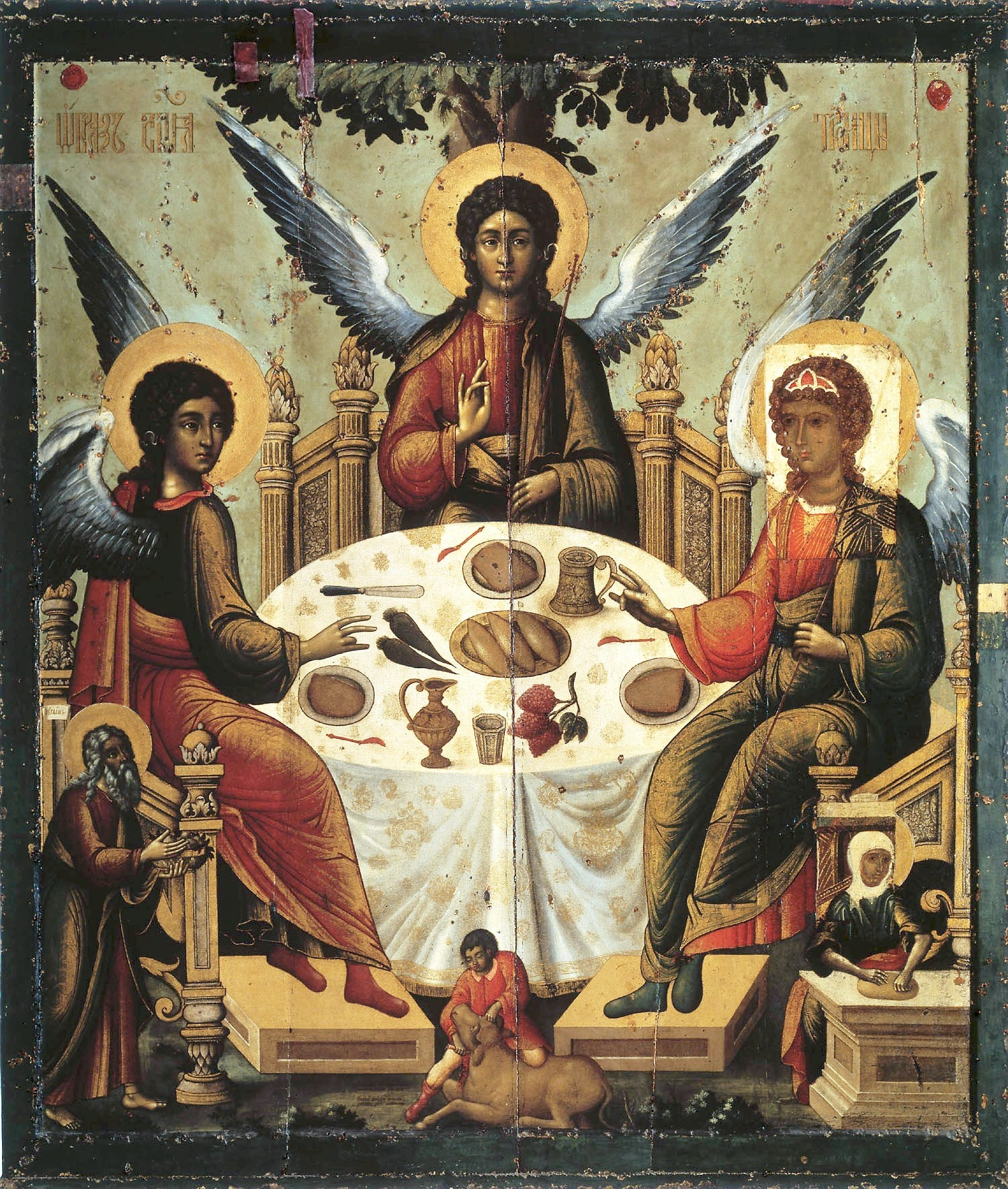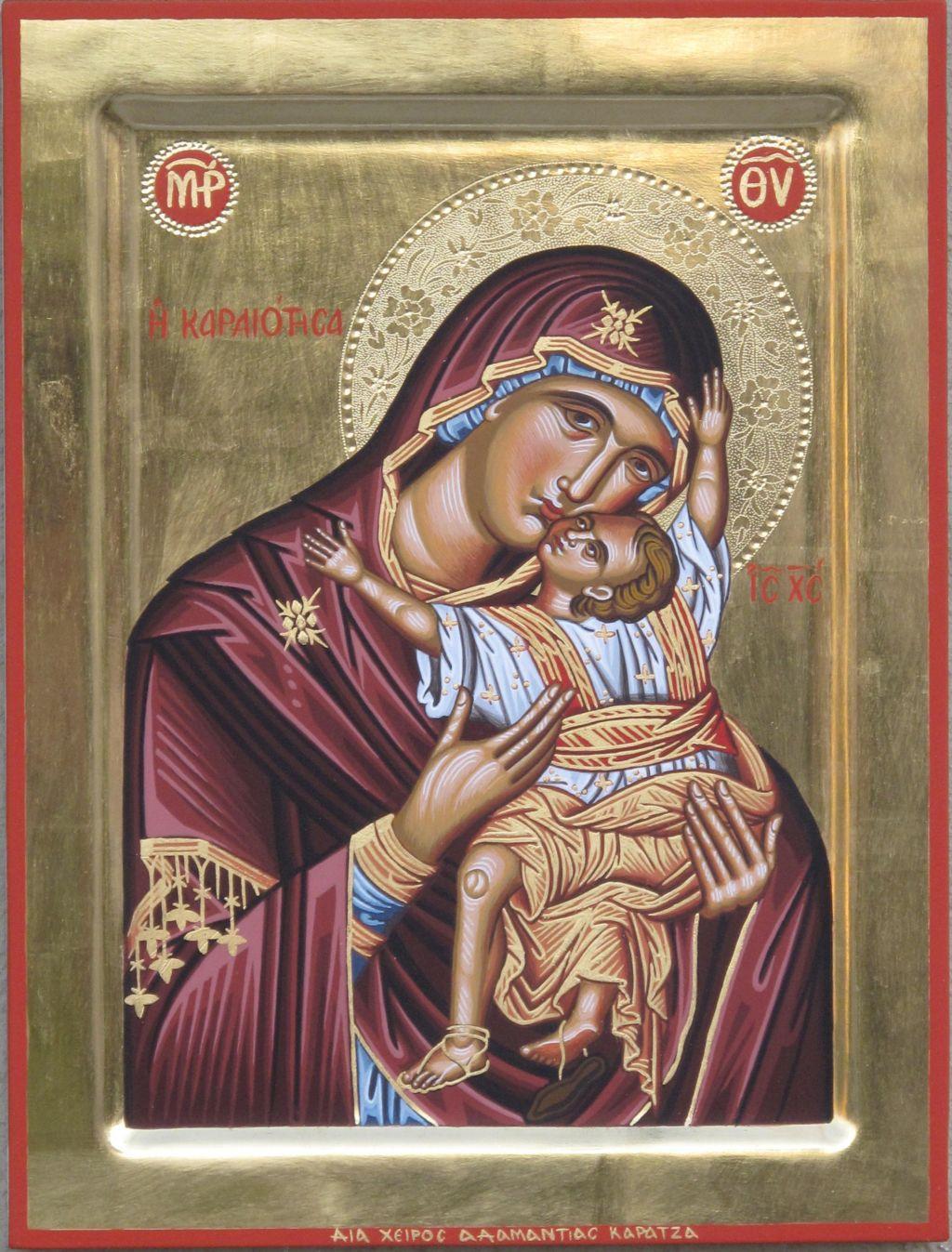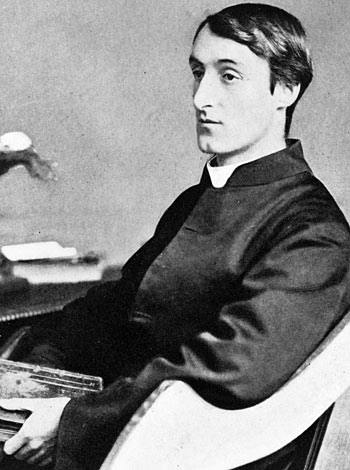For a full leaders guide of Donald Miller's book, Searching for God Knows What, click here.
Showing posts with label Christianity. Show all posts
Showing posts with label Christianity. Show all posts
Thursday, February 5, 2015
Monday, January 5, 2015
5 Things about Racism I learned from John M. Perkins
 |
| John M. Perkins |
But let justice roll down like waters, and righteousness
like an ever-flowing stream
like an ever-flowing stream
(Amos 5:24 ESV).
In light of recent racial tensions throughout the country, I thought a great book to read for our next book community would be John M. Perkins' Let Justice Roll Down. If you haven't had the pleasure of reading this enlightening book by and about a Christian civil-rights leader, it should be on your list for the coming year (because that's your resolution, right? more books!?). Keep in mind that even though this was written decades ago, many statements he makes about our society's injustice towards other races unfortunately still hold true. Here are some truths I learned while reading to wet your appetite for his book:
1. It's all about power.
In his own experiences, Perkins realized that "The Southern white doesn't want the blacks removed. What he wants is to have the blacks under his control, in a special relationship to him." I suppose I always assumed that through racial tensions, one group wanted to eliminate the opposing group to make things easier. However Perkins gives interesting insight, stating that keeping the downtrodden under the oppressor's feet allows them to keep their power. This is truly what they want. Not elimination, just power over them. Who might we be keeping under our feet due to white privilege today? Think about the marginalized of our society.
2. Taking a stand against oppression is the only way to start fixing the injustice.
"In situations of inequality or oppression, the oppressed group must take a stand somewhere, sometime. For until the people take that stand, there is no development possible for them. Yet when they take that stand in the face of clear injustice, an oppressed people are once again humanized." Development cannot occur for a particular group of people if they are constantly under an oppressor's foot. Lifting that foot, by helping gain the right to vote, work at good jobs, and live in acceptable housing begins to clear that injustice the system has pushed. Only then can humanization truly occur for people. Until then, people are merely existing without being able to thrive.
3. Christianity must be stronger than racism.
It seems often that church is merely a social club or a quick answer for our actions. Perkins unfortunately witnessed this in the South, where white Christians did not acknowledge racial tensions as an injustice that needed fixed. Rather they utilized their social status to keep many blacks downtrodden. Jesus overcame many societal issues of his day, much to his peers' dismay. Likewise, Perkins charges Christians to do the same, accepting the fact that it may not be easy, but eliminating racial injustices in society is what Jesus needs us to do. Christianity is a stronger force than racism, bigger than economic struggles, and more powerful than anything against Jesus' teachings. We have the important duty to accept this truth and act in ways according to Scripture to show others just how powerful Christianity can be, so that the following question is no longer needing to be asked: "The question on my mind and on the minds of most black people to whom we preached was whether or not Christianity was a stronger force than racism."
4. Identity in Christ is necessary to combat racism.
4. Identity in Christ is necessary to combat racism.
Perkins explains how "Everybody needs to feel important - because he or she is. But brutality is something like dope. Some people have to have it to confirm themselves. It's a sickness of the racist." This comes down to an identity issue. It is something that so many of my friends have been struggling with lately, as they finish college, or go through a divorce, or leave a job. Who are they without these things they've put their trust into? Likewise, racists have confirmed themselves over and over with the power that comes with putting others down. This power is a drug - they need it more often and do not seem to care who they hurt in the process. This is why people become addicted to their jobs, or obsessed with particular aspects of life: they need more and more of that "drug" to confirm who they are. Perkins hits it on the nose by saying "Everybody needs to feel important- because he or she is." EVERYONE IS IMPORTANT and everyone can find that confirmation through Scripture and prayer and the comfort Jesus gives us knowing this. But when we lose focus of not only our importance, but our neighbor's importance, issues begin to arise. Hold strong to the hope that lies in our identity in Christ.
5. We're all biased.
"Whether or not we admit it, our reading of biblical ethics is colored by our perception of the world around us." This is an unfortunate truth. If I grew up rich and affluent in America, I will read Scripture through this lens. If I grew up knowing many economic and social hardships in the Global South, well then you better believe my understanding of Scripture will be different from the American's. Regardless of where in the world you are from, there is a perception that comes along with your readings.... you are biased. It is inevitable. It is important, however, to understand this clouded lens and not argue with those who do not see things your way, but rather try to see how they have approached the same text in a different way. Perkins saw how the whites in his town used their Christian privilege to keep blacks oppressed (which is obviously unbiblical). They weren't all bad people, just confused in their theology. We perceive things differently based upon how we were raised, but that doesn't change the one truth given to all. What we must do is seek out true understanding and pray for clarity and justice for all God's people.
While these are all very racially-charged statements, there is so much biblical truth that is held within each sentence. Perkins understood that God could speak through people of all races and statuses, and fights to allow more voices from the African-American culture to be heard. The fact of the matter is that Christians need to band together to eliminate injustice to God's people - all people.
For a discussion guide to help in your own book club or personal reading, click here for a PDF.
For a discussion guide to help in your own book club or personal reading, click here for a PDF.
Thursday, November 20, 2014
Mere Christianity & Life Together Discussion Guides
Since our group has completed the Mere Christianity discussions, I figured I ought to share the questions for anyone interested. Please download the PDF here.
We also just finished reading Life Together by Dietrich Bonhoeffer in it's entirety. I've also uploaded a PDF of these discussion questions here for public use.
Our next book is "The Magician's Nephew" by C.S. Lewis.
Check back for more details and study guides!
Friday, October 10, 2014
4 Reasons to Utilize the Spiritual Discipline of Art Journaling
 One of my favorite subjects (besides English) is Art. In fact, I often wish I had pursued my M.A. in Art History - but, hey, I have a lifetime of education ahead of me. There's still time. One of my most recent discoveries is spiritual journaling with prompts from icons. I've been able to merge my two favorite subjects by first studying art, then writing anything that comes to mind from this interaction. It has proven to be a powerful spiritual discipline for my own faith journey.
One of my favorite subjects (besides English) is Art. In fact, I often wish I had pursued my M.A. in Art History - but, hey, I have a lifetime of education ahead of me. There's still time. One of my most recent discoveries is spiritual journaling with prompts from icons. I've been able to merge my two favorite subjects by first studying art, then writing anything that comes to mind from this interaction. It has proven to be a powerful spiritual discipline for my own faith journey.1. Art can Connect us to God
In his book, Behold the Beauty of the Lord, Henri Nouwen, describes his interactions with four particular icons. He responds through writing detailed descriptions of how each speak to him and how they assist in his connection with God. He states how these pictures help "[lead] us to the heart of God as well as to the heart of all that is human. It is a sacred event in which contemplation and compassion are one, and in which we are prepared for an eternal life of seeing."Pictures, paintings, mosaics, woodcarvings, etc. all can draw people nearer to the author of creation. In fact, this is why so many were in the church back in the day - because those who were illiterate could not connect by reading Scripture and therefore could gaze upon the depictions of Scripture which aligned the cathedral walls.
2. Journaling allows for Honesty
 According to Ann Voskamp, "Journaling cultivates deep honesty and authenticity." I whole-heartedly agree with this statement. It allows for honest feelings and opinions because it is only for you to teeth out emotions. A much cheaper version of counseling, if you will.
According to Ann Voskamp, "Journaling cultivates deep honesty and authenticity." I whole-heartedly agree with this statement. It allows for honest feelings and opinions because it is only for you to teeth out emotions. A much cheaper version of counseling, if you will.No one else will see this, so it doesn't matter what you say or feel. Why do you think people get in such an uproar if someone looks through their journal or diary? Their privacy has been invaded! The personal deep thoughts and emotions are compromised because now someone else is aware of this intimacy between you and your journal.
This is another reason why so many use the act of journaling as a spiritual discipline. It is a great way to be honest with God. It can hold prayers, fears, and questions that may be too difficult for group prayer. But I find it is much easier to voice my opinions through the power of the pen.
3. Art invokes Response
The last time I visited the Cleveland Museum I stood in awe amidst some of the largest paintings I had ever encountered first-hand. It's hard to realize their grandeur when merely studying them in a little art history book. My response was to simply stand, stare, and take it all in.These paintings hold so much truth behind each brush stroke. I love learning about the hidden meanings of the colors used, or the objects embodied within the painting. So many details which often go unnoticed! It makes me wonder about the artist, too. What were they thinking when painting this? What was the cultural climate? Was this just a job or were they deeply invested in the subject matter?
Looking, studying, and feeling these pieces of art has helped bring me closer to the artist's intention, to the importance of art, and to the vast creation God has made. It invokes a response of awe and wonder. It invokes praise and adoration for God and the amazing talents He has given his people.
4. Art Journaling is Approachable for Everyone
Even if Art isn't really your thing, journaling about your response to creation (which I think is God's artwork) is just as important. There is no need for a degree in art history to appreciate the value of creation. If there really is no response to a fresco, mosaic, embroidery, or painting, then write about that! No one says you must fall to your knees in response. Write about frustrations or hopes and desires. This discipline of journaling - specifically art journaling - might not be for everyone. It is merely a suggestion because it suits my particular interests and desires. But I have a hunch that not only is it approachable for everyone, but helpful.So... give it a shot. A spiritual discipline is important to make that connection with God routinely. So often we allow our days to fill up with stuff and squeeze him in at the very end.
 Here's my challenge:
Here's my challenge:
Focus on one piece of religious-ish art each day for a week.* Journal about anything that comes to mind- whether that be praises, adoration, thanksgiving or even fear and sadness.
Contemplate for a bit.
Then let the words flow through pen to paper.
You'll often be amazed at what can come from your own hand.
*One book I've found particularly helpful as of late is: The Face of Jesus
Comment below with any pieces of art you've found particularly intriguing or helpful insights to spiritual art journaling.
Labels:
Ann Voskamp,
art history,
art journaling,
Christianity,
diary,
discipline,
Henri Nouwen,
icons,
journal,
journaling,
religious art,
spiritual disciplines,
spiritual literature,
spiritual writing
Monday, September 8, 2014
Reading Invokes a Response
As Merton recalled of one of his
favorite authors, “The Providence of God was eventually to use Blake to awaken
something of faith and love in my own soul – in spite of all the misleading
notions, and all the almost infinite possibilities of error that underlie his
weird and violent figures.”[1] God can use any avenue to bring people to his
presence. Blake was not always a man of
faith, and therefore his poems were not strewn with Christian illusions. Yet God used Merton’s love of literature to
draw him nearer; He might use art or even sports to do the same for
another. It just so happened that Merton
had a consistent stream of books which held his interest and therefore God
entered the pages to come to life through his persistent reading.
So “just as his reading helped
him in moving toward these goals, so our reading of Merton’s works can do the
same for us.”[2] We can take his example and draw nearer to
God through reading, if that is a love of ours.
Spiritual reading as a whole can “assist in the reformation of our
hearts and minds into the likeness of Jesus Christ.”[3] Utilizing books for this purpose involves
interacting with the words for the personal formation aspects rather than the
head knowledge that can be gleaned.
After his conversion, Merton
wrote “to help people to be better Christians”[4]
just as so many writers before him had done.
He appreciated the custom of Saint John of the Cross, who wrote out
“short meditative phrases…that could be used as a meditative preparation for
contemplative attention.”[5] Merton utilized such a practice to help young
monks approach meditation. His
theological writing assisted the deepening of faith for his fellow monks as
well as superiors and even for readers today.
This practice was used in Merton’s own practices as one of his favorite
things to do was to meditate “in silence on a spiritual author.”[6] I think this is a very practical takeaway
from how Merton utilized his love of literature to further his spirituality.
The act of reading is not merely
for pleasure, but it invokes a response.
Personally, I have found certain quotes
from Merton helpful in my own spiritual journey as I am able to contemplate his
words as they relate to the Christian life.
He was able to “juxtapose whatever he reads and contemplates…with the
reality of his monastic existence.”[7] Likewise, the reader of Merton works and
other spiritual writings can contemplate the words on the page in their own
setting. I, too, can appreciate the
aspects of creation that are touched upon in Blake’s poems and the vividness of
Hopkin’s verses. Writers have the unique
gifts to bring to life things that are often passed by without much thought
since “words can travel beyond their confines
into the mystery of God.”[8] The importance of spiritual reading is
to see how God works through these writers to bring his people closer to Him. This was evident in Merton’s life as he
became the same literary influence that other writers had been to him.
Tuesday, August 19, 2014
Thomas Merton & Gerard Manley Hopkins (Merton's Love of Books - part 5)
 Thomas Merton not only enjoyed
the poetry of Gerard Manley Hopkins, a poet from the mid-nineteenth century,
but also held a number of similarities to the man. Hopkins, like Merton, converted to
Catholicism during his time in college and focused his efforts primarily on
writing. He utilized complicated rhythms
within his poetry and focused upon the beauty found in nature.
Thomas Merton not only enjoyed
the poetry of Gerard Manley Hopkins, a poet from the mid-nineteenth century,
but also held a number of similarities to the man. Hopkins, like Merton, converted to
Catholicism during his time in college and focused his efforts primarily on
writing. He utilized complicated rhythms
within his poetry and focused upon the beauty found in nature.
Merton was first introduced to
his poetry through his Headmaster.
Though he had never heard of the man up until this point, Merton
recalled how his poetry “was original and had a lot of vitality and music and
depth.”[1] Years later he found himself picking up more
of Hopkins writing, absorbed not only in his verse but also in his life as a
Jesuit, which prompted questions of what priests’ lives consisted of. This writing sparked an interest in the faith
and Merton was actually “reading a biography of Hopkins when he made the
decision to become a Catholic.”[2] The similarities found between their lives
actually prompted Merton’s conversion.
As he read more and more of
Hopkins, his appreciation for the man prompted his own attempts at writing
verse and his intention to “write a Ph.D. dissertation on Hopkins” while living
in New York.[3] Merton was influenced not only by his writing
but also by his life as a devout man of faith.
Gerard Manley Hopkins struggled
with the effects writing could have on his faith. He was “concerned that his poetry was
preventing him from concentrating fully on his faith,” and therefore “burned
his poems and stopped writing poetry entirely for seven years.”[4] It was not until he was asked to write a poem
by his superior that he picked his pen back up to commemorate those who died
for their faith. Similarly, when Merton
“first entered the monastery he expected he would not be allowed to write.”[5] He did not think it was a viable option for
someone called to be a contemplative.
However, his superiors
recognized this gift within him and ordered him to write. Merton was able to “see his writing as a help
to his contemplation instead of its rival.”[6] He found strength through it, which empowered
his readers as well. Hopkins’ poetry
“captures the beauty of ordinary things and helps us to see them in a new way,
a way that gives glory both to God and to creation.”[7] Both Hopkins and Merton were willing to give
up their love of writing for the sake of the gospel, but they were rewarded by
their faithfulness and utilized these gifts for the empowerment of the kingdom.
Friday, August 8, 2014
Thomas Merton & James Joyce (Merton's Love of Books - part 4)
 Merton was first introduced to
the writings of the novelist and poet James Joyce through his book Ulysses.
Though this book had been read a few times in his young life, Merton
recalled the impact Portrait of an Artist
had on him.
Merton was first introduced to
the writings of the novelist and poet James Joyce through his book Ulysses.
Though this book had been read a few times in his young life, Merton
recalled the impact Portrait of an Artist
had on him.
Originally he had found the
parts on Joyce’s spiritual crisis depressing, but later he was drawn to “the
expertness of the sermon” on hell which “stimulated and edified”[1]
Merton. Through this knowledge of
Joyce’s writings, he found himself “naturally making mental comparisons”[2]
with what Joyce wrote and what the priests taught in mass. Apparently there was more influence on him
than he even realized. He recalled how
“there was something eminently satisfying in the thought that these Catholics
knew what they believed, and knew what to teach, and all taught the same thing,
and taught it with coordination and purpose and great effect.”[3]
It was through this appreciation
of the subject matter that his fascination grew and James Joyce became a
prominent influence on Thomas Merton’s own beliefs in the Catholic life. In fact, years later Merton told a priest
“that reading Joyce had contributed something to [his] conversion.”[4] It certainly helped fuel his interest in the
Jesuits and what they had to offer the faith he was now considering.
Subscribe to:
Posts (Atom)

